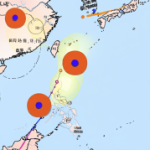The user wants a detailed analysis and professional report (over 1000 characters) in Traditional Chinese about the impact of better-than-expected non-farm payroll data on the Dow Jones Industrial Average.
Here’s a plan:
* Strong NFP indicates a robust job market.
* A strong job market usually means healthy consumer spending.
* Healthy consumer spending is good for corporate profits, especially for companies in the Dow (many are large, established businesses sensitive to economic cycles).
* However, strong NFP could also signal potential inflation pressure, which *might* push the Fed to hike interest rates. This is usually negative for stocks.
* The market’s *initial* reaction here is positive, suggesting the “strong economy/consumer spending” narrative is outweighing the “Fed tightening” concern *in this specific instance*. Need to explore *why* that might be the case or if other factors are at play (e.g., previous market sentiment, other economic data, specific sector performance).
* Opening: Grab attention, introduce the key event and market reaction. Use a catchy title-like phrase instead of a formal title.
* Setting the Scene: Explain what non-farm payrolls are and why they are important indicators. Briefly mention the expectation vs. the actual result.
* The Market’s Cheer: Detail the immediate positive reaction in the Dow Jones. Explain *why* a strong job market *can* be positive for stocks (economic strength, consumer confidence).
* The Other Side of the Coin: Discuss the potential implications of strong data for monetary policy (interest rates, inflation). Why didn’t this negative potential dominate the initial reaction? (Perhaps the strength wasn’t *too* strong, or other data points/market expectations softened the blow).
* Beyond the Headlines: Look at potential nuances, other market movements (if available), sector performance, investor sentiment driving this specific reaction. Is this sustainable?
* Looking Ahead: What does this mean for the near future? How might the Fed react? What should investors watch?
* Conclusion: Summarize the key takeaway – strong NFP sparked a rally, highlighting the market’s focus on economic resilience, at least for now, while monetary policy remains a key variable.
* Use Traditional Chinese.
* Maintain a tone that is easy to understand but professional.
* Avoid overly technical jargon.
* Inject some creative phrasing (“市場瞬間雀躍”, “數據的雙面刃”).
* Ensure smooth transitions between sections.
* Use Markdown for formatting (subheadings).
* Ensure the text flows naturally and exceeds 1000 characters.
* Do *not* include a main title at the beginning.
* Do *not* include greetings or concluding remarks like “這是報告…”.
* Do *not* include sources/references at the end.











